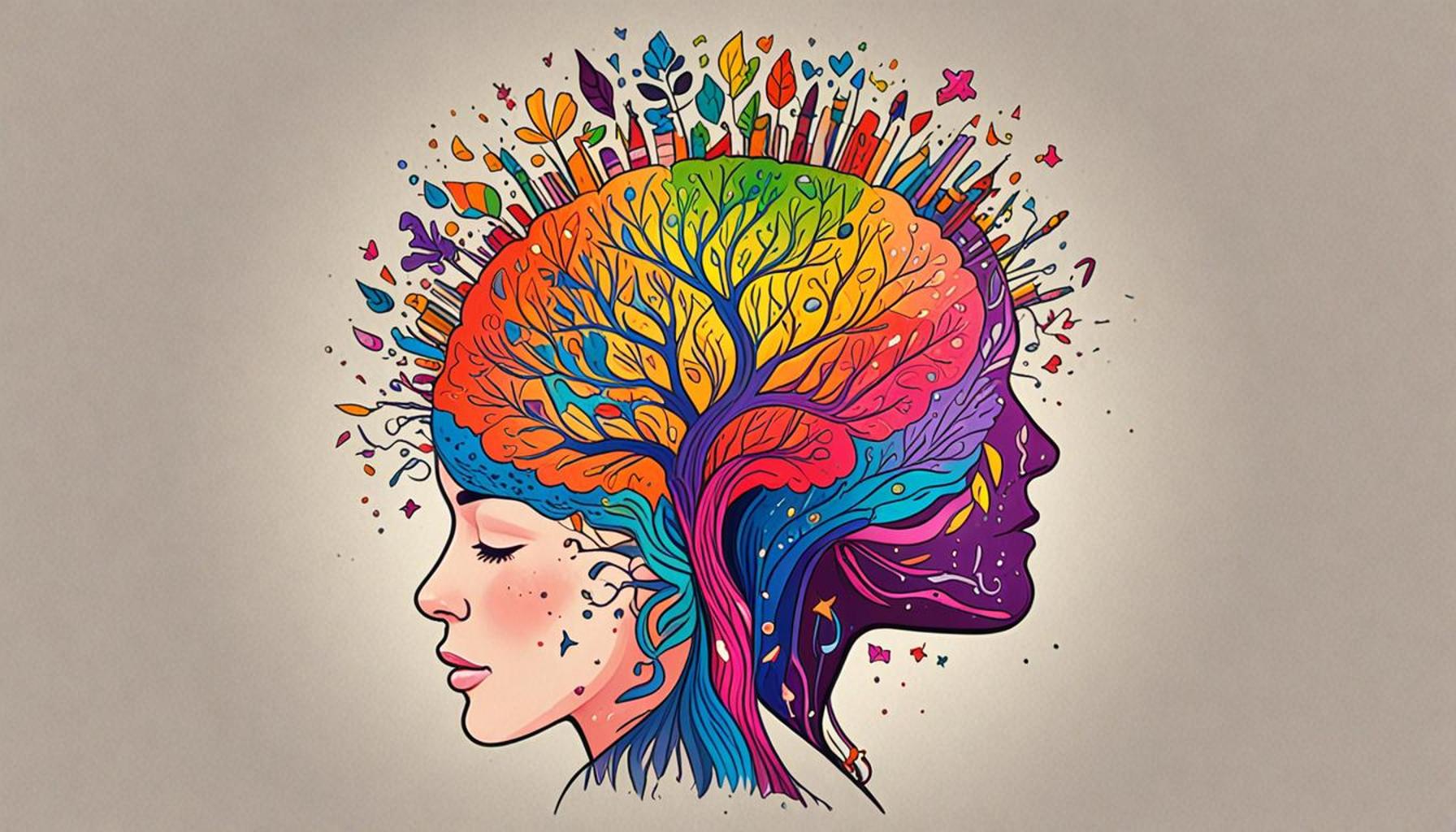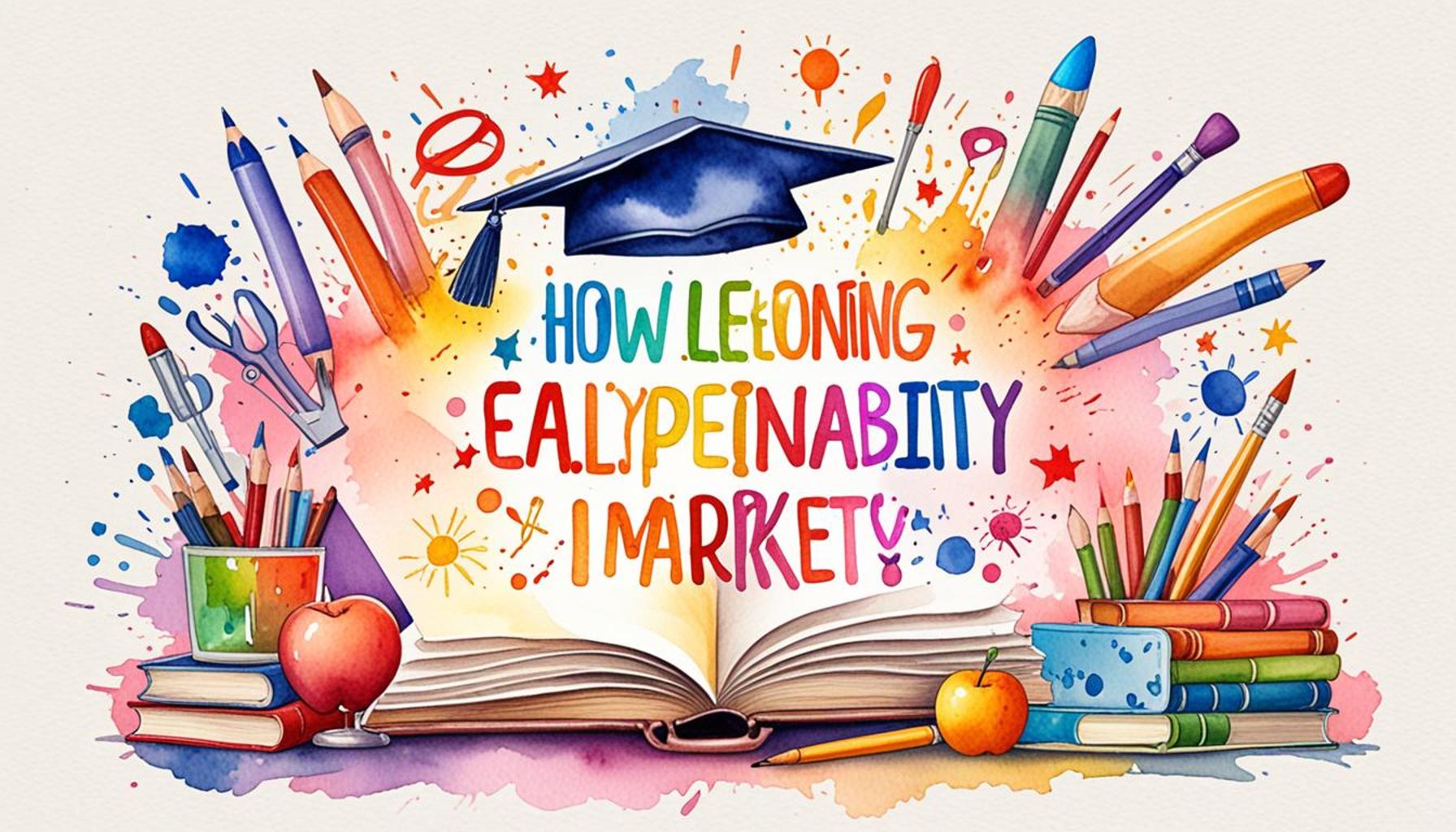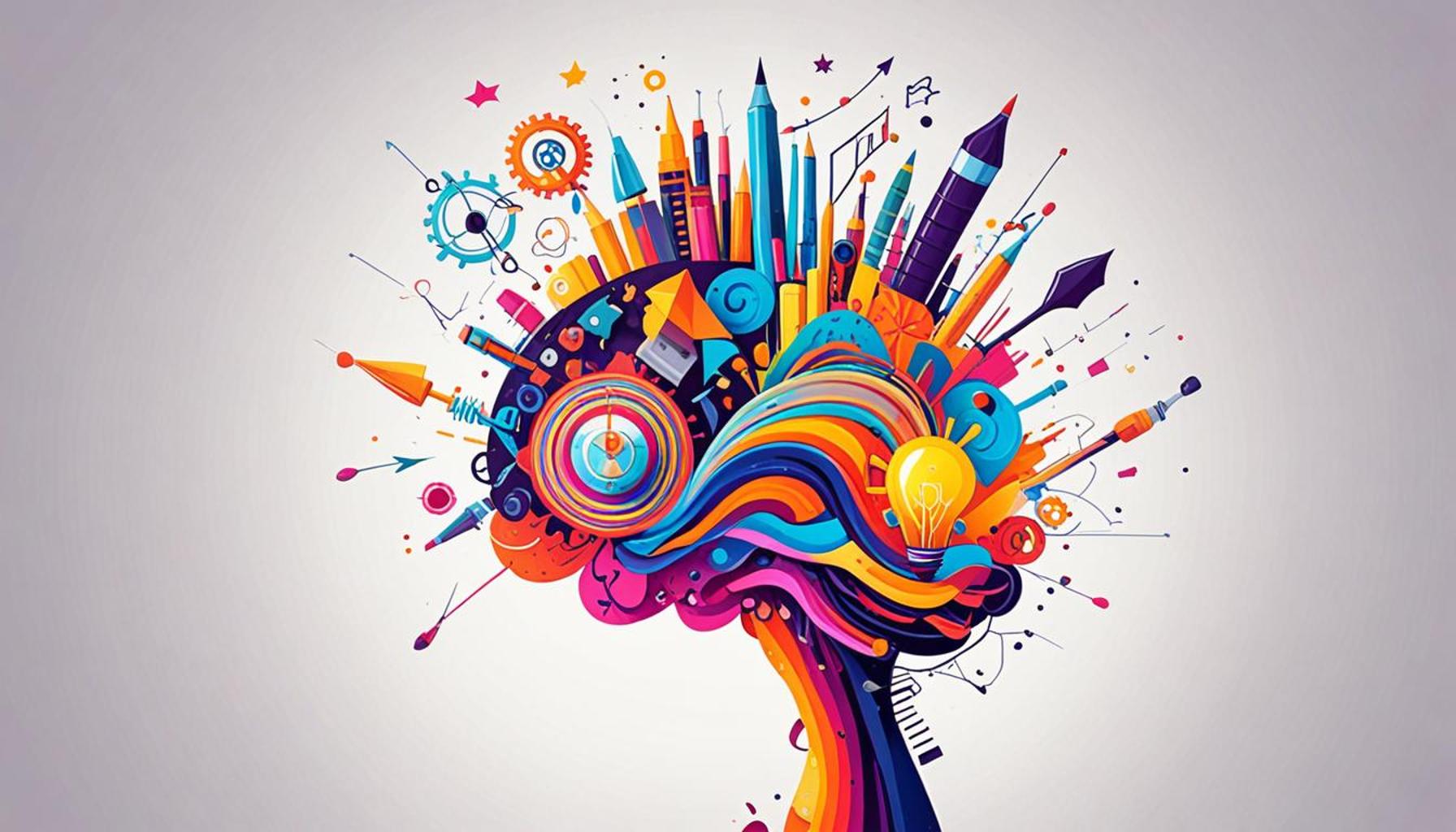Continuous Learning and Mental Health: How Personal Growth Can Improve Well-Being

The Impact of Continuous Learning on Mental Health
In a rapidly evolving world, the importance of mental health as a core aspect of overall well-being is becoming increasingly acknowledged. Among various strategies to foster mental well-being, the concept of continuous learning stands out as a particularly effective approach. Continuous learning not only broadens one’s understanding and skills, but it also plays a crucial role in enhancing emotional stability and resilience against life’s challenges.
Consider the multifaceted benefits of continuous learning:
- Boosts Confidence: The act of mastering new skills directly correlates with an increase in self-esteem. For instance, a young Nigerian professional who takes up a course in digital marketing may find their newfound knowledge empowering, leading to greater confidence in job interviews and career advancement.
- Encourages Adaptability: In a fast-paced society, adaptability is key. Learning helps individuals react effectively to various changes, be it a sudden shift in job roles or adapting to new technology. For example, during the COVID-19 pandemic, many Nigerians turned to online platforms for learning, enabling them to adapt quickly to remote work environments.
- Reduces Stress: Engaging in new educational pursuits often provides a healthy distraction from daily worries. Immersing oneself in a fascinating subject can allow the mind to break away from stressors like financial concerns or societal pressures. Community workshops that teach traditional crafts often serve as an excellent outlet for creativity and stress relief.
In Nigeria, the vibrancy and ambition of the youth population make the case for personal growth particularly compelling. Opportunities for self-improvement abound, whether through online courses, informative webinars, or community workshops focused on skill acquisition. Programs like the Federal Government’s National Social Investment Programme aim to empower young people by providing access to vocational training that can improve their economic prospects while also nurturing their mental health.
The relationship between continuous learning and mental health is particularly evident as individuals embark on these personal journeys. Many discover that improvements in cognitive function are often accompanied by gains in emotional resilience and overall happiness. This harmonious interaction between continuous learning and mental health paves the way for cultivating a more robust and supportive society.
As we delve deeper into the ways personal growth fosters well-being, several strategies for embracing lifelong learning will emerge. These insights will undoubtedly guide readers toward a brighter and more resilient future, where knowledge is not only power but also a pathway to enhanced mental wellness.
YOU MAY ALSO LIKE: Read read another article
Personal Growth Through Continuous Learning
At the intersection of continuous learning and mental health, the notion of personal growth emerges as a pivotal factor enhancing individuals’ psychological well-being. Engaging in lifelong education not only enriches knowledge but also fosters a sense of purpose, a crucial component often linked to improved mental health outcomes. This sense of fulfillment acts as a stabilizing force against anxiety, depression, and other mental health challenges prevalent in contemporary society.
To illustrate the significance of personal growth through continuous learning, consider the following key dimensions:
- Enhanced Cognitive Skills: Continuous learning stimulates cognitive functions such as memory, problem-solving, and critical thinking. This not only aids in professional development but also contributes to a sharper mental agility that can combat age-related cognitive decline. For example, an individual in Nigeria who engages in learning new software programming languages not only improves their job prospects but also maintains their mental acuity.
- Strengthened Social Connections: Many learning environments, such as workshops and study groups, offer opportunities for social interaction. Building a network of like-minded individuals can provide emotional support and reduce feelings of isolation. Initiatives like community learning centers play a vital role in bringing people together, creating a sense of belonging that is essential for good mental health.
- Increased Motivation: As individuals continuously learn and achieve their educational goals, they often experience a boost in motivation and drive. The satisfaction derived from tackling new challenges and overcoming obstacles translates to a more positive outlook on life. This motivation can be especially beneficial during tough times, as individuals are likely to develop resilience that enables them to persevere.
In Nigeria, where the quest for knowledge meets the rich cultural tapestry of the nation, personal growth can take many forms. From online courses that are accessible to young Nigerians seeking to upskill, to local initiatives promoting creative and vocational education, the possibilities are not limited. Programs targeting entrepreneurship and leadership development cultivate a generation geared towards both personal achievement and collective advancement.
The link between continuous learning and mental health is further reinforced by research indicating that actively engaging in learning activities leads to lower stress levels and increased life satisfaction. Individuals who invest time in developing new competencies not only feel accomplished but also develop coping strategies that better equip them to handle external stressors. As individuals experience a growth mindset, they become more adept at navigating life’s ups and downs, thereby enhancing their overall mental resilience.
As we explore the various avenues through which personal growth fosters well-being, it will become increasingly clear that the relationship goes beyond simple skill acquisition. It encompasses a transformative journey that cultivates emotional intelligence, resilience, and a supportive community—all foundational aspects of robust mental health.
| Advantage | Details |
|---|---|
| Enhanced Resilience | Continuous learning equips individuals with strategies to cope better with stress, leading to greater mental resilience. |
| Boosted Self-Esteem | Engaging in personal growth stimulates confidence, which can significantly enhance overall well-being. |
Diversifying skills through continuous learning not only fosters intellectual growth but also allows individuals to adapt to changing life circumstances with more agility. This adaptability is closely tied to improved mental health, as it reduces feelings of helplessness during challenging situations. Furthermore, individuals who commit to lifelong learning often report a sense of achievement, which feeds into their overall happiness.Taking on new challenges and seeking out knowledge can serve as a powerful antidote to anxiety and depression. The act of setting and achieving learning goals cultivates a sense of purpose, encouraging a positive mental state. In exploring new ideas, individuals may also discover a renewed passion for life, highlighting the interconnection between personal growth and emotional well-being. By recognizing these dynamics, readers can see how investing in their own education and growth leads not only to personal success but also to enhanced mental health.
YOU MAY ALSO LIKE: Read read another article
The Transformative Power of Continuous Learning
As we delve deeper into the transformative power of continuous learning for mental health, it’s essential to highlight how personal growth catalyzes emotional and social adjustments that ultimately contribute to overall well-being. Beyond the basic cognitive enhancements, engaging in diverse learning opportunities invites individuals to redefine their perceptions and grapple with new ideas and perspectives, fostering a more profound sense of adaptability and resilience.
Emotional Regulation: Continuous learning serves as a valuable tool for improving emotional regulation. By exposing individuals to various psychological concepts, conflict resolution strategies, and emotional literacy, they become more equipped to manage their feelings. For instance, online mental health workshops tailored for Nigerian youths may explore practical strategies for emotional intelligence, allowing participants to articulate their feelings effectively and navigate interpersonal relationships with greater ease. This enhanced emotional awareness significantly lowers the incidence of stress and anxiety, creating a ripple effect on mental health.
Creative Expression: Another aspect that warrants attention is the role of continuous learning in fostering creative expression. Activities such as writing workshops, art classes, or music courses not only enhance individual skills but also present safe spaces for self-expression. In Nigeria, community-driven initiatives encouraging arts and crafts have seen participants channel their emotions into tangible forms of creativity, often leading to therapy-like experiences. Engaging in creative practices helps to alleviate depressive symptoms while promoting a positive self-image.
Adaptability to Change: The dynamic nature of our modern world necessitates that individuals cultivate adaptability to cope with evolving challenges. Continuous learning helps individuals to become more flexible thinkers, allowing them to embrace change rather than resist it. For instance, Nigerians facing career transitions, such as moving from traditional farming to digital entrepreneurship, find that learning new skills like digital marketing or e-commerce not only opens doors professionally but also builds confidence, an essential facet of mental well-being.
Real-Life Learning Impact: Various case studies within Nigeria demonstrate the positive impact of continuous learning on mental health. A local tech hub in Lagos, for example, brings together aspiring developers and entrepreneurs. Participants often report a significant uptick in confidence and a better support system after engaging in peer-to-peer learning. The collaborative learning environment fosters not only skill enhancement but also meaningful connections, reducing feelings of loneliness and promoting mutual support.
Furthermore, programs targeting adult education for literacy have been reported to improve not just professional opportunities, but also personal agency. Adults who pursue vocational training often express a renewed sense of purpose, which is directly associated with reducing anxiety and boosting self-esteem.
The interplay between continuous learning and mental health emphasizes the need for individuals to seek out and participate in educational avenues throughout their lives. From formal institutions to community-driven educational initiatives, the landscapes for learning are numerous and varied. As more individuals recognize the intricate link between personal growth and psychological well-being, the dialogue surrounding mental health and educational opportunities will continue to evolve, potentially leading to a cultural shift in how these two facets are perceived and valued in Nigeria.
ADDITIONAL INSIGHTS: Expand your understanding here
Conclusion
In summary, the relationship between continuous learning and mental health highlights a profound opportunity for individuals in Nigeria to cultivate personal growth that significantly enhances well-being. The exploration of diverse learning experiences not only nurtures emotional regulation and creative expression but also fosters adaptability in an ever-evolving world. As we have seen, local initiatives—from tech hubs in Lagos to community art programs—demonstrate the tangible benefits of continuous education on mental health, leading to resilience, enhanced self-esteem, and a supportive network.
Moreover, the case for prioritizing lifelong learning becomes clearer in the context of societal challenges confronted by Nigerians, as adapting to change through education expands not just individual capabilities but also collective strength. The innovative spirit within communities can lead to a cultural shift where the importance of mental health and continuous learning are seamlessly intertwined, thus breaking down stigmas and encouraging open dialogue.
As we move forward, it is imperative for stakeholders—educators, policymakers, and community leaders—to invest in accessible learning platforms that promote both mental well-being and skill development. Embracing this synergy between personal growth and psychological health will create a more resilient society, where learning becomes the cornerstone of a fulfilling life. Engaging actively in continuous learning is not just a pathway to improving one’s mental health; it is an essential journey towards resilience, connection, and overall life satisfaction for all Nigerians.


